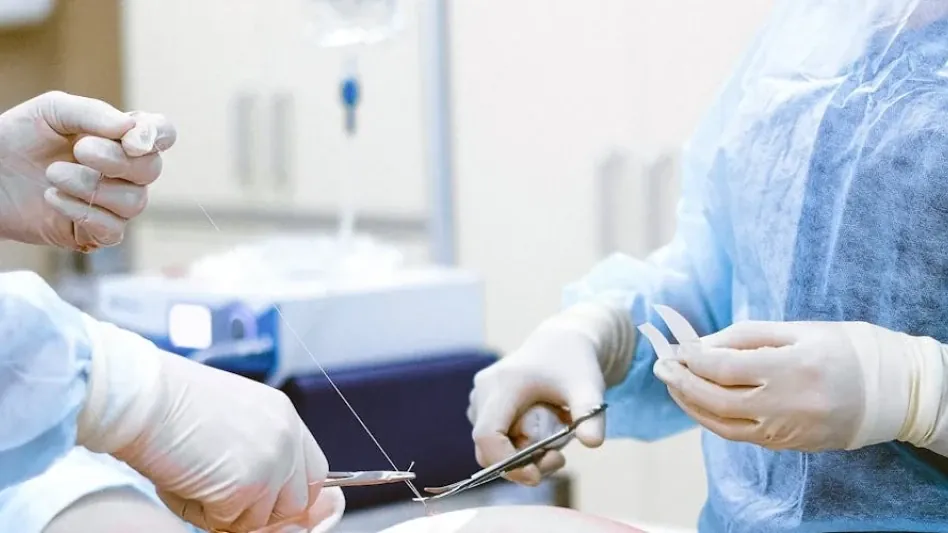The healthcare system in the United Kingdom is facing a staggering increase in the number of botched operations and medical errors, putting further strain on an already overstretched NHS. In the last five years, the incidence of surgical mistakes and procedural errors has notably risen, leading to additional treatments for affected patients. These mistakes range from the use of unclean tools to performing surgery on the wrong part of the body and even leaving medical instruments inside patients post-operation, highlighting a critical issue in patient care and safety.
Rising Incidents of Surgical Errors
Alarming Statistics and Trends
One of the most concerning statistics is the 72.6% increase in patients requiring extra medical care due to surgical errors, escalating from 13,903 cases in 2018/19 to 23,997 in the last year. This steep surge underscores a significant problem within the NHS, as these incidents place greater demands on already limited resources, including staff and operating theaters. Consequently, the backlog of patients on waiting lists has grown to an alarming figure of 7.6 million, exacerbating an already critical situation in the healthcare system.
Among the various types of surgical mistakes, the most frequent is the accidental cutting, puncturing, or perforation of unintended body parts. Last year alone recorded over 19,174 such incidents. This specific error has nearly doubled over the past five years, marking a 13% increase in just the last year. Such trends suggest a troubling pattern that merits immediate attention and corrective measures. The high frequency of these errors is particularly concerning, as it reflects underlying issues in surgical practice and procedural protocols that necessitate urgent re-evaluation and improvement.
Routine Procedures and Common Mistakes
Significantly, these medical errors are not confined to intricate surgeries but are also prevalent during routine procedures. For example, errors emerge during standard endoscopic exams where flexible cameras assess internal conditions. Instances of using unsterilized equipment and incorrect administration of medication dosages compound the problem, leading to further complications. Improper sterilization of surgical instruments has resulted in infections, while incorrect medication dosages have had adverse effects, sometimes with severe consequences for patients. These routine oversights highlight gaps in procedural checks and training, calling for an overhaul of existing practices to ensure higher safety standards.
Impact on Patients and NHS Resources
Personal Consequences for Patients
The repercussions of these medical errors on patients are dire, resulting in unnecessary pain, extended recovery periods, and increased risk if additional surgical interventions become necessary. This cascade of errors further strains NHS resources, diverting them from reducing waiting times and improving overall patient care. The personal impact of these errors is profound, with individuals suffering significant setbacks in their lives. Case studies exemplify the human cost of these medical mistakes. For instance, Rodney Winchester, a builder, experienced a devastating life change after a botched knee operation. Following unnecessary removal of his entire knee joint when less invasive steroid injections would have sufficed, Winchester became disabled, losing his business, wife, and home as a result.
Notable Case Studies
Another stark example involved a surgeon at the Royal Sussex Hospital who, lacking a sterile scalpel, resorted to using a Swiss Army penknife to perform surgery. Despite the patient surviving, the incident represented a severe breach in surgical protocol and underscored the gravity of procedural failures within the NHS. Furthermore, Dr. Yaser Jabbar, a former NHS orthopedic surgeon, has been accused of inflicting long-term harm on children through flawed surgeries. Treating 721 children at Great Ormond Street Hospital, Jabbar’s errors led to severe injuries, including amputations and limbs of different lengths. Despite serious allegations and an ongoing review of his work, Jabbar continued to practice and perform surgeries in Dubai, raising questions about accountability and oversight in medical practice.
Systemic Issues and Responses
NHS Acknowledgment and Complexity of Surgeries
The NHS partly attributes the surge in errors to the increasing complexity of the surgeries performed. However, they also acknowledge the unacceptable nature of preventable mistakes, particularly ‘never events’—incidents that should never occur, such as leaving medical instruments inside patients. Despite recognition of these issues, 335 such cases were recorded last year. Similarly, there were 47 incidents involving non-sterile equipment and 132 cases of medication dosage errors leading to complications. These numbers reveal systemic flaws requiring comprehensive strategies to address safety lapses and enhance procedural oversight.
Calls for Improved Safety Measures
Moreover, this upward trend in medical errors raises questions about the adequacy of current training programs, regulatory oversight, and hospital administration practices. The increase in errors can be attributed to several factors, such as staff shortages, insufficient training, and inadequate hospital resources. There is an urgent need for systemic reforms to improve safety protocols, enhance staff training, and ensure adequate staffing levels to address this critical issue effectively.









